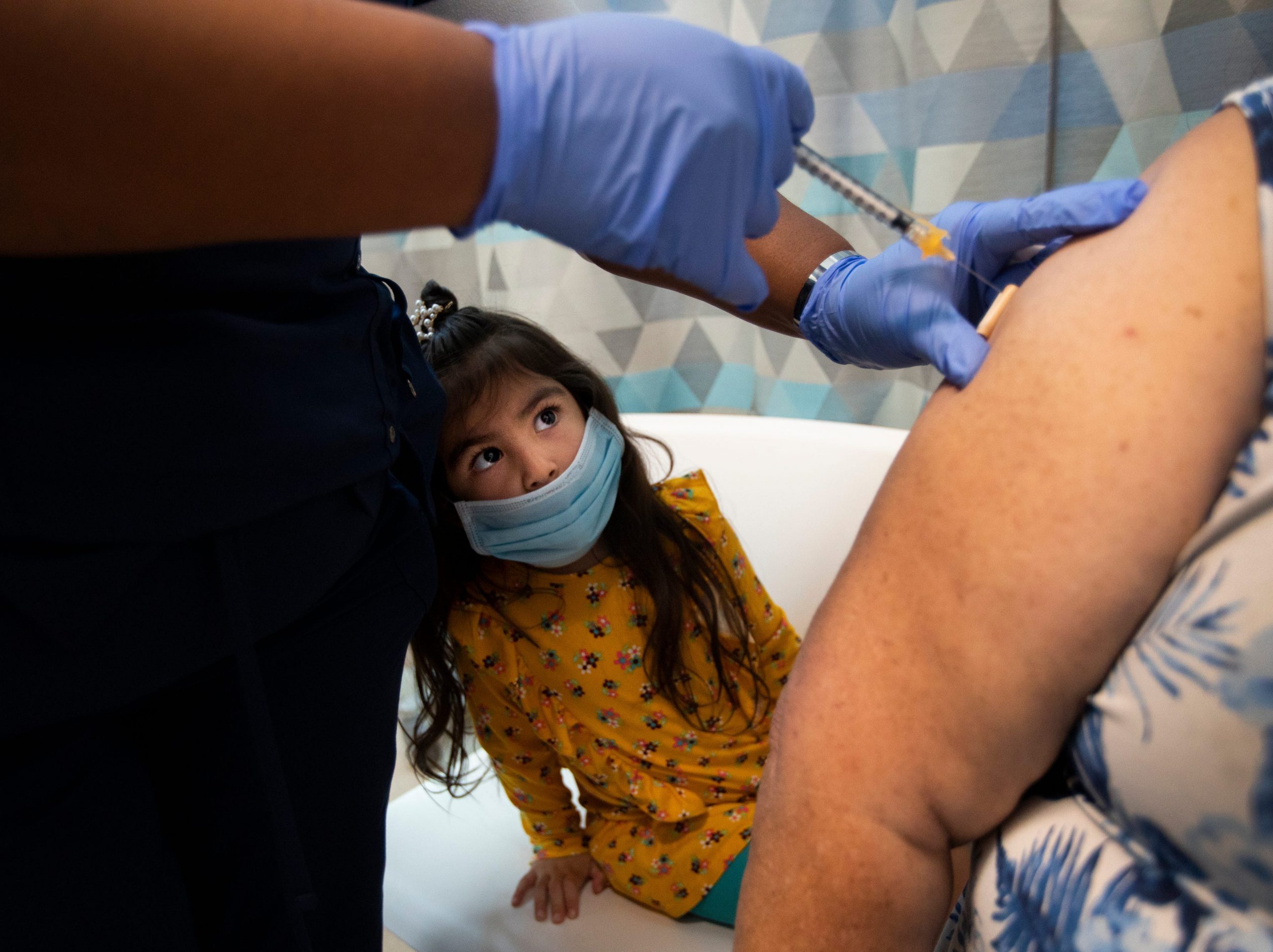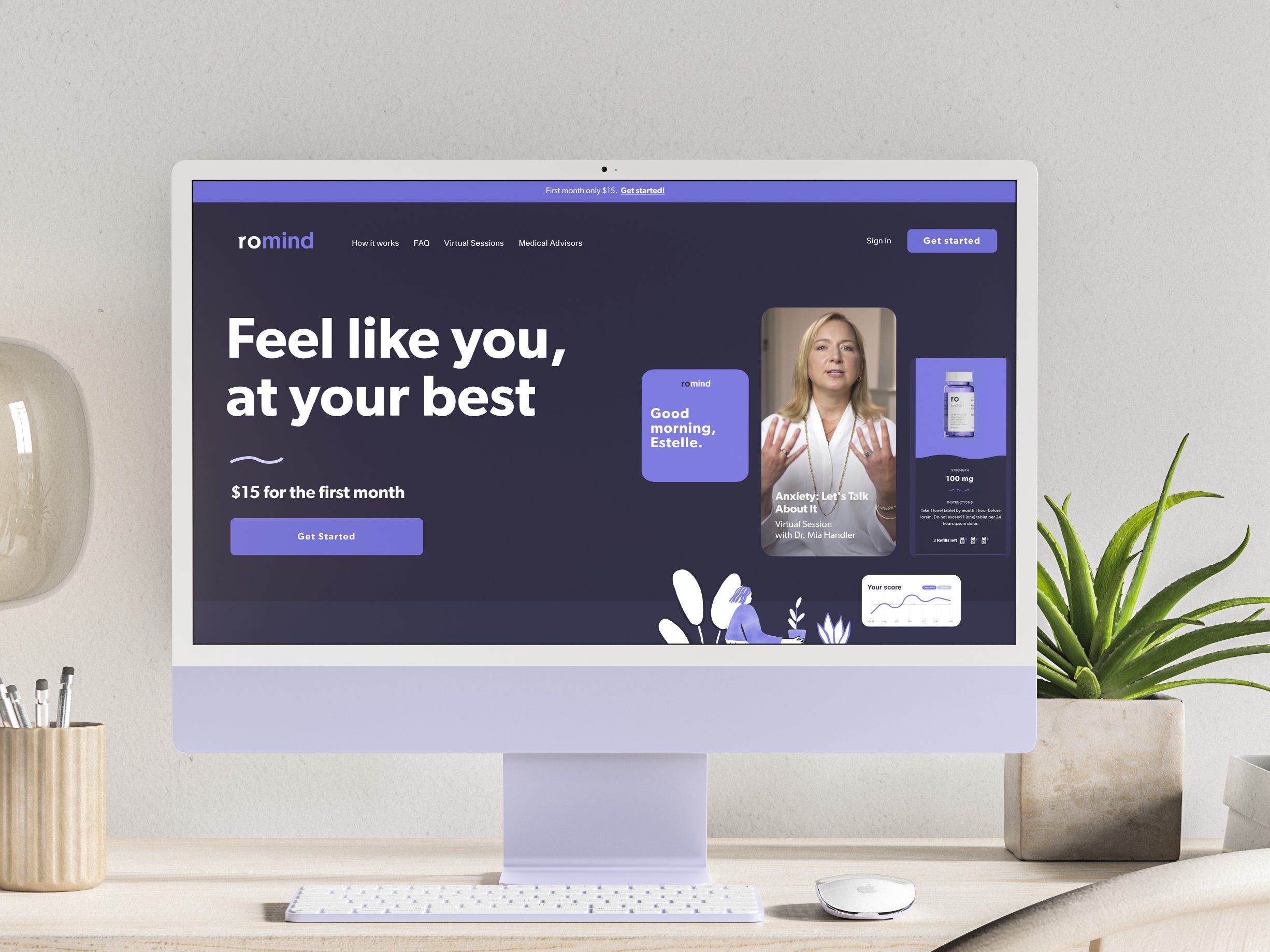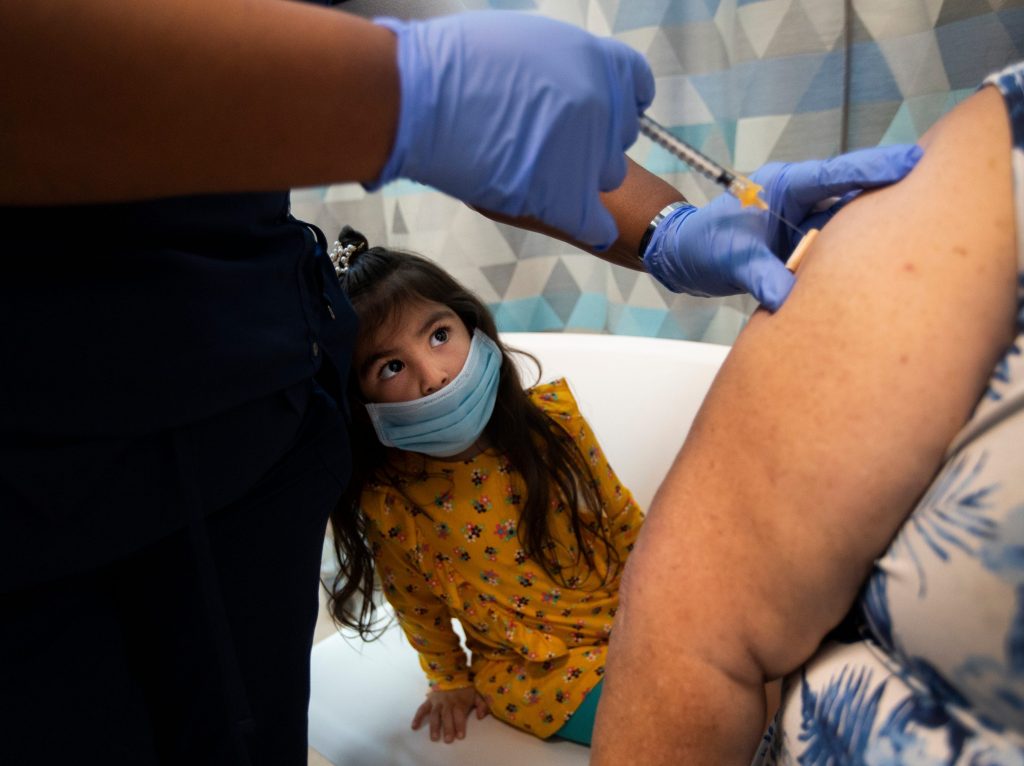Hello,
Welcome to Insider Healthcare. I'm Lydia Ramsey Pflanzer, and today in healthcare news:
- When to expect coronavirus vaccine authorizations for kids;
- Mental-health upstarts that charge as much as $99 a visit and don't take insurance risk leaving out vulnerable people;
- Athletes are sharing more about their mental health at the Tokyo Olympics.
If you're new to this newsletter, sign up here. Comments, tips? Email me at [email protected] or tweet @lydiaramsey125. Let's get to it…

Francine Orr /Los Angeles Times via Getty Images

Vaccines may get authorized for young kids in October. Here are the drug companies' most likely timelines.
- Coronavirus vaccines won't be available for children under 12 until after school starts.
- Pfizer expects to know how its vaccine performs among kids ages 5 to 11 by the end of September.
- Moderna could seek FDA authorization in the winter or early next year.
Here's what you need to know>>

The webpage for Ro's mental health service Ro Mind.
Ro

Ro
Startups are pioneering new ways to get therapy or depression meds. They're betting it's the future of healthcare, but they risk leaving out vulnerable people.
- Digital-health companies want to capitalize on the rising demand for mental-health care.
- Some say they offer cheaper, easier access to online therapy and medication by taking cash.
- Critics say they risk leaving out vulnerable people and worsening care.

Simone Biles, of the United States, waits for her turn to perform during the artistic gymnastics women's final at the 2020 Summer Olympics, Tuesday, July 27, 2021, in Tokyo.
AP Photo/Gregory Bull

AP Photo/Gregory Bull
Olympic athletes are being more open than ever about mental health and the pressures of competing
- Athletes at the Tokyo Olympics have been outspoken about their mental health in recent weeks.
- Most recently, Simone Biles withdrew from the gymnastics team finals over mental health concerns.
- Psychologists have lauded Biles and other athletes for helping to break the stigma of mental illness.
More stories we're reading:
- Louisiana has a higher rate of COVID-19 infections than any country in the world (Insider)
- Sanofi is buying mRNA company Translate Bio in a $3.2 billion deal (Reuters)
- 1 in 3 new COVID-19 cases over the past week were in 2 states - Texas and Florida, White House official says (Insider)
- How tech could influence the future of trans healthcare (Mother Jones)
- Lydia
Read the original article on Business Insider
Dit artikel is oorspronkelijk verschenen op z24.nl
